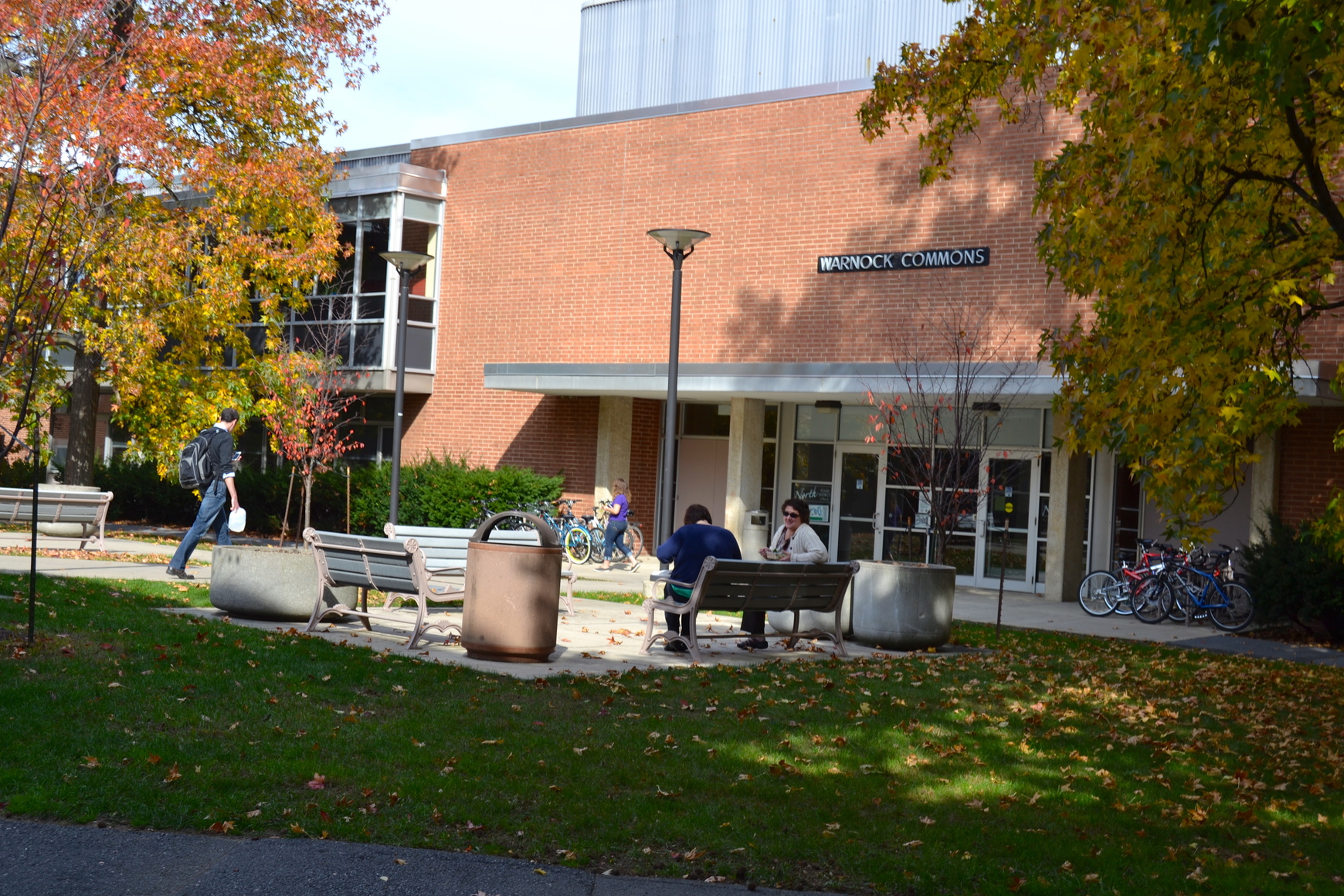Geosciences Professor Creates Podcast To Educate About Our Planet

Reimink created the podcast alongside Chris Bolhuis, his former high school teacher. Back then, he took one of Bolhuis’ classes that involved camping out west to learn about geology and biology for three weeks. Once Reimink got to college, the duo started venturing out on regular rock-collecting trips.
“In the summertime, we would drive to some area where we could collect cool rocks and minerals and do a lot of hiking,” Reimink said.
After Reimink graduated from college, the two truly became friends. While Reimink was in graduate school, he would come back to Michigan and make an effort to see Bolhuis. He even went along on a trip that Bolhuis leads for high schoolers. When Reimink came up with the idea to create a podcast, he knew he needed to call Bolhuis.
“I definitely thought that Chris has an exceptional teaching ability, and I thought that would be great for the podcast,” Reimink said. “He could educate more than just his classroom every year. He could educate lots of different people.”
When the coronavirus pandemic started in March 2020, Reimink contacted Bolhuis about his podcast idea.
“It took me totally off guard. I said I would think about it,” Bolhuis said. “I called back the next day, he told me what his idea was and I was intrigued, but also a little hesitant. That was kinda how it all started and we just went from there.”
The idea soon evolved between the duo. They talked about the importance of geosciences to society and their goal was to “sell” the geosciences in this podcast.
“We’ve said this a lot to each other, ‘There’s no planet B,’” Bolhuis said. “The more people learn about our planet, the better equipped we are to take care of it. That was really important to us and what drives PlanetGeo.”
The podcast content is, by design, mostly stand-alone. No science background is needed to listen. The episodes include discussions about recent news articles, basic geosciences concepts, and interviews with top researchers or people who lead governmental agencies within the geosciences discipline. Recently, the duo has started to interview authors who have written books related to geosciences.
“We really like doing the interviews,” Reimink said. “Chris and I choose topics around basic concepts like the greenhouse effect or volcanos. We also design episodes that are a little more general knowledge. There’s a wide range here.”
Among the episodes, they have covered topics including ancient nuclear reactors and done interviews with other Penn State faculty, such as professor and climate expert Michael Mann.
To decide what is going to be covered in each episode, they pitch ideas to each other. They’ll discuss what the point is, why they should talk about the topic, and what listeners should take away from it. They go back and forth with the ideas until they agree on a topic. Once they agree that they should do an episode on some topic, they’ll write a script and talk about delivery.
“We’ve learned to trust each other,” Bolhuis said. “We’ve been doing this for quite a while, going to two years for a podcast is quite a while. If Jesse is passionate about something and he brings me a topic, then I’ve learned to trust that he’s gonna carry it. Jesse is the same as me.”
Reimink also thinks that their different backgrounds contribute to telling the stories in the podcast.
“Chris has been teaching high school geosciences at a very high level for a long time and won many regional and national awards for teaching geosciences,” Reimink said. “He’s got a down path on how to tell a story so everybody can keep along with it. I have been more on the research based on what we know, what in the textbooks may be a little bit wrong, and some disagreements in the community. Very different skill sets and I hope that comes across a little bit and that those complement each other.”
The goal of the podcast is to have the listeners look around the world through different lenses. The duo wants folks at home to appreciate the physical world around them.
“If people are connected to Earth, then maybe they will be more compelled to take care of it,” Bolhuis said. “The more you know about something, the more you love it. For me, it’s a goal.”
The podcast has been a professional development for both of them. Bolhuis and Reimink both said they have learned a lot from each other and have applied the acquired knowledge with their respective students.
“I have been teaching for 25 years, I am at the end of my career, and this is easily the best professional development that I have done in my entire career in terms of making me a better teacher and giving me more experiences that I can bring to my class and my high school students,” said Bolhuis. “Talking and getting access to these people that are letting us interview them is amazing to me. I am so grateful for that.”
Reimink also encourages Penn State students to take geosciences classes.
“There is geosciences all over State College, and many of them we talk about in the podcast,” Reimink said.
You can listen to the podcast here. As you might’ve guessed, its creators think you’ll find it to be pretty important.
“If you care about our planet, listen to the podcast,” Bolhuis said.
Your ad blocker is on.
Please choose an option below.
Purchase a Subscription!




